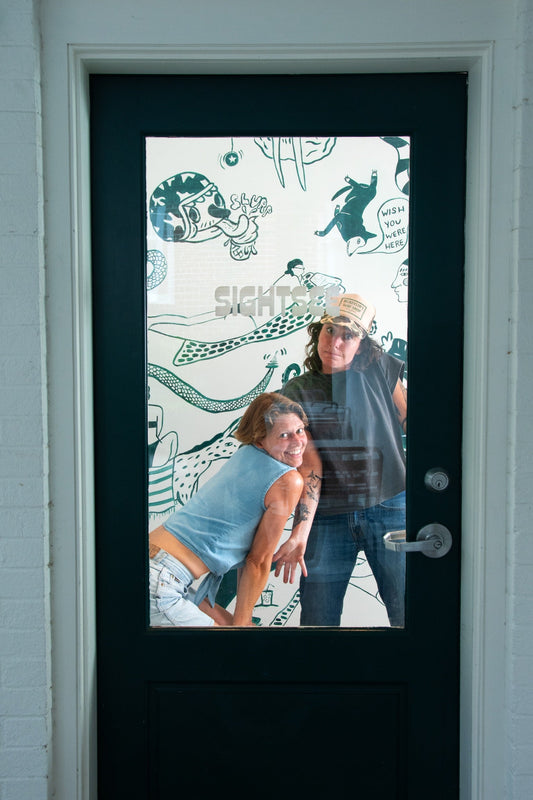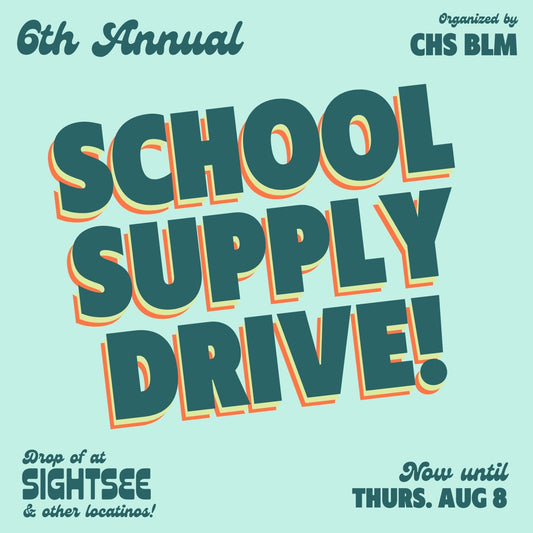
Guji Mane Pt. 1: Make Cxffee Black Again
Joel SadlerShare
One of our favorite things about coffee is the potential the industry has to be a force for good all over the world. "Potential" being the operative word. The reality, however, is that it is impossible to separate the coffee industry from slavery, colonialism, and continued racism.
The husband-and-wife duo behind cxffeeblack, Renata Henderson and Bartholomew Jones, have found a way to put that reality front and center in a creative and profound way with their flagship coffee: "Guji Mane." With one simple play on words, they have fundamentally reframed specialty coffee as we know it in America and succinctly encapsulated their mission to Make Cxffee Black Again.
As soon as we saw Guji Mane we knew we had to offer it at Sightsee and, in doing so, fully engage the conversation it forces us to have.
Before getting into it, though, it should be stated that we are not the first to serve Guji Mane. Not even close. It has been nearly a year since cxffeeblack first introduced Guji Mane at this point. If anything we are late to the game but we prefer that to never so here we are.
Like many white people, we have ourselves experienced a mind-opening several months in America in regards to race. Again, late to the game but here we are. We have elected to focus our energy and reflection on the domains in which we operate as a business. One of those domains is the coffee industry, obviously. In the U.S., it has long been observed that the specialty coffee industry is overwhelmingly white. When you think of a cafe that serves "single origin" coffees brewed by hand, chances are you correctly picture the brewer and customers to be white despite the fact that the people who picked the coffee by hand at said single origin are very much not.
White people tend to think of coffee shops as universally welcoming community spaces because white people - especially progressive white people - feel welcome there. There’s an unconscious assumption that if a white person feels comfortable in a space, and if that space doesn't overtly discourage people of color to enter, then it must be a place where all races feel comfortable.
At Sightsee, we've begun to recognize just how false this assumption really is. We also recognize the extent to which we, as white people in America, rarely experience the discomfort of feeling that something isn't accessible to us. This is overwhelmingly true within the specialty coffee industry.
It's precisely for that reason that a specialty coffee called "Guji Mane" was so impactful. At first glimpse, we experienced that visceral discomfort that "this cool thing isn't meant for me." I'm not part of the group that gets to enjoy this. The font on the bag is inspired by graffiti, not millennial serif. The description on the back emphasizes the history of slavery and colonialism, not MASL and processing method. It evokes Gucci Mane not Vampire Weekend. Everything about it is "black" not "white."
The result is an opportunity to appreciate the reality of how the predominant trappings of specialty coffee in America communicate that a "single origin Ethiopia" is a white thing when, quite literally in every sense, it is very much a black thing.
Serving Guji Mane allows us to extend that opportunity to our Charleston community and take part in cxffeeblack's mission to Make Cxffee Black Again.
We encourage you to not only appreciate and spread the word about Guji Mane but to also connect with and learn from cxffeeblack directly. Here's a quick directory of where to start:
- Follow cxffeeblack on Instagram
- Listen to their interview on the Boss Barista podcast
- Subscribe to the cxffeeblack podcast
- Listen to Bartholomew Jones' Cxffeeblack album on Spotify
- Get yourself some merch at cxffeeblack.com
- Read this Edible Memphis article to understand the "x"
See "Guji Mane Pt. 2: Ethiopian Origin" for a detailed look at the who, what, how, and where of this coffee.




